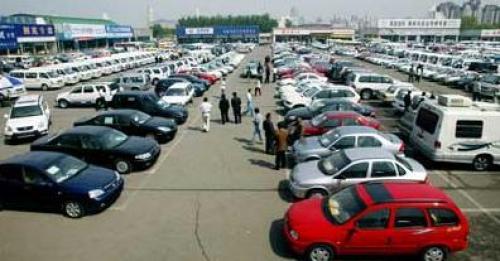The Beijing Municipal Government’s recently published “Working Plan for Pollution Control of Vehicle Emissions for 2013-2017†stated that since 2014, Beijing’s annual 240,000 car yosha index will be reduced by 90,000, or 150,000. In December 2013, 1.8 million people in Beijing participated in the shake. The percentage of winning was 100:1. Based on this base figure, the winning rate in 2014 was only 144:1. Iron Processing,Iron Ore Processing,Smelting Iron Ore,Iron Alloys Chromium Plating shegnzhuan , https://www.shengzuanmachinery.com
Upon hearing this news, the first impression of the Yao family in Beijing is this:
Is it difficult to buy a car? Beijing's dealer vomits blood sneeze: We sell cars more difficult.
In other words, you don’t have to analyze God’s old horse about one million old cars that need to be replaced. The problem is that after the obsolescence of old yellow mark vehicles, the subsidy policy has been in turmoil. If there is no new subsidy policy to follow, This part of the vehicle replacement demand is bound to reduce, and what is even worse is that Beijing's surrounding cities have followed suit to limit their licenses. They want to sell cars to neighboring provinces and cities.
So how about the days of dealers in Beijing? A certain brand of Beijing dealers said to the media: “It is now completely maintained by the after-sales service.†There are even some dealers who rely on money to sell cars to ensure sales. A self-owned brand dealer calculated an account: "Now, fewer and fewer cars are bought. Many cars earn only two or three hundred yuan. Even if they earn four or five hundred yuan, they will not have more than one gross profit this year. Thousands of profits haven't gone up, but the cost has been going up. There are still losses as workers' wages, rents, utilities, etc. We are still waiting to see how strong the manufacturers are."
“There are too many restrictions in the Beijing market, first to limit licenses, then to raise emission standards. We have already received information from manufacturers. Soon Beijing Six Standards will also be implemented. Every policy makes us unprepared. Beijing’s threshold is high, we do It's a low-end car. No matter whether the consumer is a middleman or a replacement buyer, we have no chance to choose us. Beijing is not our main market, so I feel that the manufacturers have almost given up this market,†a dealer complained.
According to statistics, there are currently nearly 400 4S stores in various brands in Beijing. Calculated on the basis of a quota of 125,000 units per month this year, the average number of new non-replacement vehicles sold at each 4S store will be 30 to 40 units.
According to the international law, the vehicle replacement rate should be 7% of the city's vehicle ownership. Calculated according to the current 5.4 million vehicles in Beijing, the replacement rate should reach 380,000 units, accounting for 70% of the expected sales in the next year. %. FAW-Volkswagen, Shanghai Volkswagen and other mainstream brands have already carried out replacement business as early as a few years ago. The subsidy amount is between 6000-8000 yuan, and other brands are between 5,000-6,000 yuan.
“In the first half of 2013, our subsidy was very small, only 2,000 yuan. In the second half of the revised subsidy policy, the subsidy quota has been adjusted to 8,000 yuan, of which, the factory subsidy is 6,000 yuan, and franchise stores subsidize 2,000 yuan, and the replacement rate has been significantly improved. However, if we look at the whole year, the figure is only 30%, which is lower than the average level of 45% in Beijing. After the adjustment of the policy, we expect this year's replacement rate to increase by 10%-15%.†Beijing Dongfeng Southern Liangma Automobile Sales Service Company Sales Director Chen Linlin told reporters, "On the premise that the absolute value of sales is reduced, all we can do is to maintain the brand's market share in Beijing by increasing the replacement ratio."
However, the premise of vehicle replacement is that the used cars that have been eliminated must have reasonable and value-based disposal methods, and consumers are willing to replace them. According to statistics, the Beijing market currently has nearly 1.5 million old vehicles under the country, accounting for nearly 30% of the current vehicle ownership in Beijing. Among them, the country’s second oldest standard car has nearly one million vehicles. The 1.5 million used cars that need to be eliminated are often because of low prices, and owners will be more cautious in deciding whether to replace them. Only by increasing the relevant subsidies and meeting the owner's expectations can it be possible to stimulate this part of the potential replacement demand, thereby driving new car sales.
Another problem is that the policy of relocation of used cars has become more stringent. Up to now, nearly 300 cities across the country have banned the use of used cars under the country's third national standard to settle in. As a result, the profit of second-hand cars has been reduced accordingly. Last year, a number of second-hand car brokerage companies reduced their acquisition volume. "The owners are reluctant to sell, businesses are reluctant to buy" This is the current status of the used car market in Beijing. According to the data of the first three quarters of last year, the used car market in Beijing fell by 2% year-on-year, ending the 106% increase in 2012. Under the influence of this downward pressure, the new car market also experienced a decline of about 2% in the first three quarters of last year.
Car: Beijing announces new policy